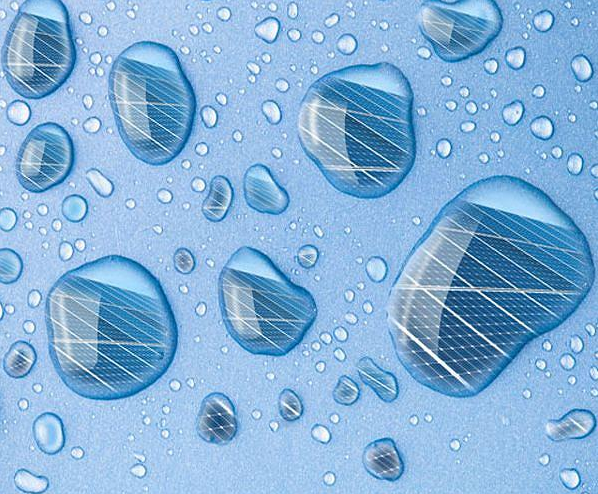LG Energy Secures Three Legal Wins in Germany; Sunwoda Faces Sales Ban Across Europe
- Energy Box

- Aug 6
- 4 min read

I. LG Energy's Triple Legal Victory Against Sunwoda
On July 23, 2025, Tulip Innovation, the only dedicated patent pool in the electric vehicle battery sector, announced that it had secured an additional court injunction against Chinese battery maker Sunwoda.
Tulip, a joint licensing platform co-founded by South Korea's LG and Japan's Panasonic, confirmed that LG Energy Solution (LGES) had won all three major patent infringement lawsuits filed in the Munich District Court.
The most recent ruling concerns LGES’s core patent on an "electrode assembly structure". The court ruled that Sunwoda’s prismatic lithium battery products infringed this patent and ordered an immediate sales ban in Germany. It further required Sunwoda to recall and destroy existing inventory, disclose accounting records, and compensate LG for damages.
Previously in May 2025, LGES had already secured two favorable rulings against Sunwoda related to its proprietary SRS separator coating technology.
This third lawsuit is viewed as a milestone, highlighting LGES’s broader effort to construct a robust patent moat across global battery markets.
Case Details:
Patent: EP 2 378 595 B1 (German part) — covers integrated electrode assembly and coated separator structure
Court: Munich District Court
Case No: 7 O 9068/24
Plaintiff: Tulip Innovation Kft. (representing LG Energy Solution)
Defendants: Sunwoda and its German subsidiaries
Hearing Date: July 3, 2025; Judgment: July 17, 2025
Ruling: Immediate injunction, mandatory recall and destruction, disclosure of accounting records, liability for damages
Appeal Status: Sunwoda has filed a nullity challenge against the patent, pending decision by the German Federal Patent Court
Prior Two Cases:
Judgments delivered on May 22, 2025
Patents: EP 1 829 139 B1 and EP 2 528 141 B1, both related to safety performance of battery separators
Resulted in Germany’s first-ever sales bans for EV battery products on IP grounds
Rulings included similar bans, recall and destruction, liability confirmation, and disclosure of business records
II. Strategic Focus on Core Technologies
As of February 2025, LG Energy Solution held approximately 40,000 registered patents and over 72,000 applications pending, positioning itself as a technology powerhouse. These victories demonstrate LG’s strategic focus on enforcing critical intellectual property rights.
The patent in question (EP 2 378 595 B1) is crucial to lithium-ion battery performance. It improves battery lifespan and safety by tightly integrating the cathode, anode, and separator.
Key Technical Innovations:
Creation of a compact, layered electrode-separator unit
Enhanced structural stability of the separator under high temperatures
Prevention of internal short-circuiting and delamination
Applicable to high-power and large-capacity systems, such as EVs and ESS
This is a foundational patent tied directly to production processes and product performance. Following the verdict, LGES swiftly pursued a court order to block further distribution of the infringing batteries in Europe.
III. Sunwoda’s Legal Risks and the Broader Challenge for Chinese Battery Firms
Sunwoda, a rising Chinese battery manufacturer from the second tier, has been aggressively expanding internationally, establishing production and sales hubs across Europe, Southeast Asia, and North America. However, LG’s legal campaign threatens to derail its global expansion.
Risks Sunwoda Faces:
Sales bans in Germany could disrupt deliveries to key European clients
Court-mandated disclosure of financial and sales data could benefit competitors
The German ruling might trigger similar legal actions in other jurisdictions
Damage to Sunwoda’s reputation may reduce client trust and hurt new business opportunities
While Sunwoda has not yet issued a public response, analysts believe the company may consider appeals or design-around strategies to mitigate long-term impact.
IV. LG’s Multi-Layered Patent Enforcement Strategy
LG’s legal actions are part of a systematic, multi-tiered intellectual property strategy that began in 2022. This strategy includes:
Global Patent Coverage
More than 20,000 international patent families across the US, Europe, Japan, Korea, and Southeast Asia
Technologies covered: materials, component structures, electrochemical systems, thermal management
Active Licensing
Cross-licensing and settlements with rivals such as SK On and AESC
Dedicated Enforcement Teams
Tulip Innovation is tasked with executing overseas litigation and licensing operations, enhancing legal efficiency and enforcement power
These moves send a clear signal: patents are critical competitive tools, not just regulatory formalities.
V. The Broader Challenge for Chinese Battery Makers: Beyond Technical Strength
Chinese battery companies such as CATL, BYD, Gotion, and Sunwoda have become major players in the global EV supply chain. However, their international expansion is increasingly constrained by intellectual property disputes.
Challenges Include:
Weak early-stage patent planning: Many firms lack comprehensive patent clearance or fail to file robust applications prior to entering overseas markets
Poor IP risk monitoring: Few Chinese firms maintain real-time alerts on competitors' patents or develop systematic avoidance strategies
Limited litigation experience: Legal procedures in Europe and the US are complex, costly, and time-consuming
Structural suspicion: Western courts may harbor biases regarding the originality of Chinese technologies
The Sunwoda-LG conflict underscores that globalization is not only about building factories and selling products — it also requires regulatory competence, IP risk management, and legal adaptability. The future of battery competition will hinge not just on kilowatt-hours, but also on who owns the patents, understands the legal landscape, and adapts fastest to international IP norms.














תגובות